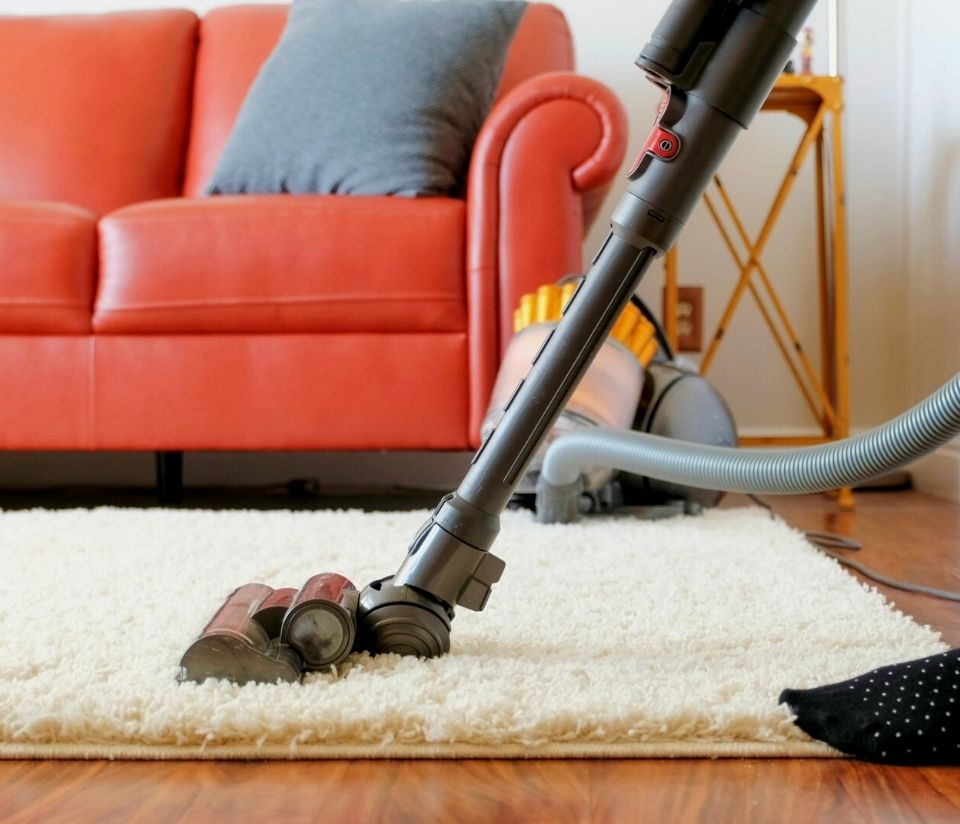
The Best Eco Friendly Vacuum Cleaner
Which vacuum cleaner brands are the most ethical and sustainable? For the answer, see our Ethical Vacuum Cleaners Ratings Table to compare brands’ ethical scores.
Our guide to the most ethical brands of vacuum cleaner…
Like laundry, washing up and cleaning, vacuuming is just one of the many household tasks that we all have to do regularly. But have you ever considered buying an eco friendly vacuum cleaner or the ethical impact of using one? Let’s have a look at the differences in the environmental ramifications of cordless vacuum cleaners, bagless vacuum cleaners, reusable vacuum bags and problematic parent company activities…
Reusable vacuum bags for your eco friendly vacuum cleaner
Though most disposable vacuum bags are made mostly from paper or fabric, the seal of the bag is often made from plastic. Opt for reusable vacuum bags to reduce the amount of plastic waste you create. Whilst paper vacuum cleaner bags may biodegrade in certain landfill conditions, synthetic fabrics take hundreds of years to break down. Moreover, reusable vacuum bags save you money. Buy reusable vacuum bags from brands that score highly in our Ethical Vacuum Cleaners Ratings Table. Try using the term ‘washable vacuum cleaner bags’ as an alternative online search option too. You may also want to consider buying biodegradable vacuum cleaner bags that you can compost at home.
Our research: Is a cordless vacuum cleaner good for the environment?
As the cost of living rises, many of us are looking for ways to cut down on our electricity consumption. You may think a cordless vacuum cleaner is a better option than one with a cord. However, a typical cordless vacuum cleaner is powered by a lithium battery, which has been associated with a range of ethical issues, due to the mining practices associated with lithium production. Lithium is a finite, unsustainable resource, and over-consumption of this chemical element is leading to its rapid depletion.
The lithium batteries in your cordless vacuum cleaner
According to Wired, approximately 500,000 gallons of water is required to mine a single tonne of lithium! This deprives local farmers and communities of their natural water supply, which is particularly concerning as lithium is typically found in water-scarce regions.
Toxic chemicals used in the process of lithium mining have been known to contaminate local rivers and lakes. Rechargeable cordless vacuum cleaners will also use your electricity supply when they are charging, so this might not necessarily cut down on your energy bill as much as you might hope!
Always check the ethics of vacuum cleaner brands on our Ethical Vacuum Cleaners Ratings Table. Some are involved in unethical activities such as human rights abuses, environmental destruction, and even the production of military equipment. Buy from brands in the green section of the table.
Our research: Vacuum cleaner companies funding conflict
Our latest research into the vacuum cleaners sector has revealed some concerning activities that several brands are involved in. Three vacuum cleaner brands, Beko, Black & Decker and Samsung have been marked down under our Armaments criteria for their parent company’s involvement in the defence industry.
For example, Koç Holding, the parent company of Beko, was found to be involved in the Turkish defence industry. The company owns Otokar, a manufacturer of military vehicles, and KoçSavunma, which produces military submarines.
Koç Holding has also been criticised by Boycott Turkey, as its Otokar Akrep vehicles were used in Turkey’s attacks against Kurdish cities. The Kurdish people have suffered through genocide, displacement, war and persecution. At The Good Shopping Guide, we believe it is unacceptable to profit from the devastation of war, and therefore encourage you to avoid brands owned by Koç Holding, such as Beko.

Our advice: Buy a bagless vacuum cleaner or reusable vacuum bags
The unethical activities that occur within the vacuum cleaner sector may seem overwhelming. But there is some good news. Purchase from the green brands in our Vacuum Cleaners Ratings Table to find the best ethical and eco friendly vacuum cleaner.
As we have previously mentioned, if you buy a cordless vacuum cleaner this risks harm to the environment. Avoid purchasing a cordless vacuum cleaner and instead opt for a vacuum cleaner with a cord. If you are concerned about your energy use, we recommend researching an ethical energy provider.
Is a bagless vacuum cleaner better for the environment?
Top tip: buy a bagless vacuum cleaner to reduce plastic waste! With a bagless vacuum cleaner, there is no need to purchase any vacuum bags, which saves money as well as waste. A bagless vacuum cleaner may therefore be a good option for you. They’re simple to use and don’t require the effort of changing bags. (Dust exploding all over the freshly vacuumed carpet, anyone?)
Brands such as Shark and Philips make and sell a bagless vacuum model, and have an 82/100 GSG Score on our Ethical Vacuum Cleaners Ratings Table.
Can I recycle my vacuum cleaner?
The Good Shopping Guide always recommends attempting to repair any broken products. This will not only save you money, but also decrease waste and demand for more new vacuum cleaners whose manufacturing methods may be unethical and environmentally damaging. You should check your vacuum cleaner regularly to keep it in good condition. However, if your vacuum cleaner has well and truly had its day, you should contact the manufacturer, who are responsible for its safe disposal and recycling. Alternatively, you can find a government-approved list of collection facilities for waste electrical and electronic equipment (WEEE) at this website. Ethical shoppers should never just chuck a vacuum cleaner in the landfill or general waste, as their metal and plastic components could harm the environment if they rust, degrade or are incinerated.
Buy a second-hand vacuum cleaner
Buying second-hand is a good alternative to buying new if your old vacuum cleaner is totally beyond repair. The best eco friendly vacuum cleaner is a preloved eco friendly vacuum cleaner!
See our Ethical Vacuum Cleaners Ratings Table to compare brands
The Good Shopping Guide has analysed and investigated into thousands of brands that appear on our Ethical Ratings Tables. We have compiled this research that features in our ratings and rankings into articles. Read these for more information about the ethics and sustainability efforts of each of the brands.
Miele, Henry, Rowenta, Vax, Philips, Shark, iRobot, AEG, Daewoo, Eufy, Morphy Richards, Russell Hobbs, Zanussi, Beko, Dyson, Bosch, Black & Decker, Hoover and Samsung.